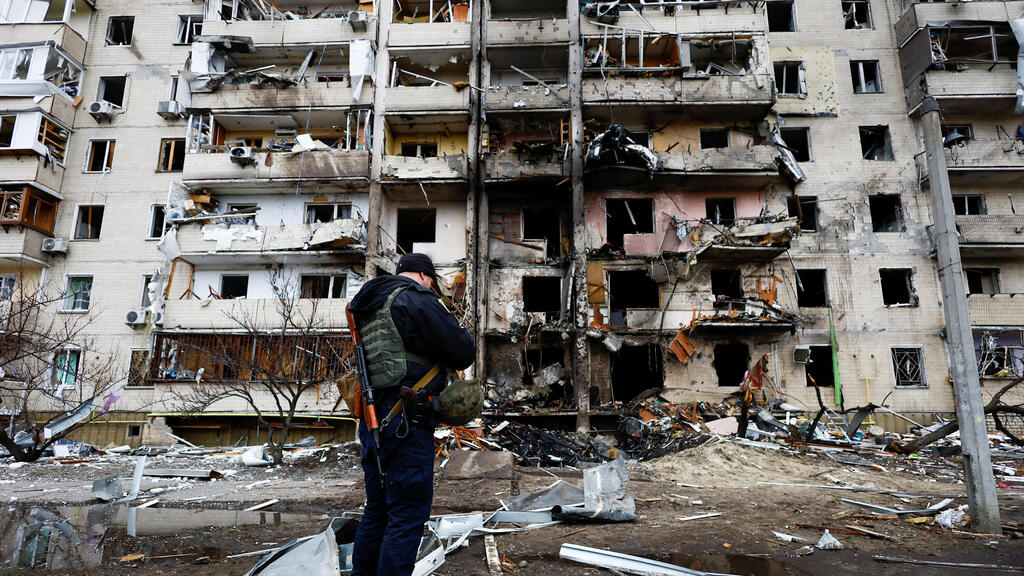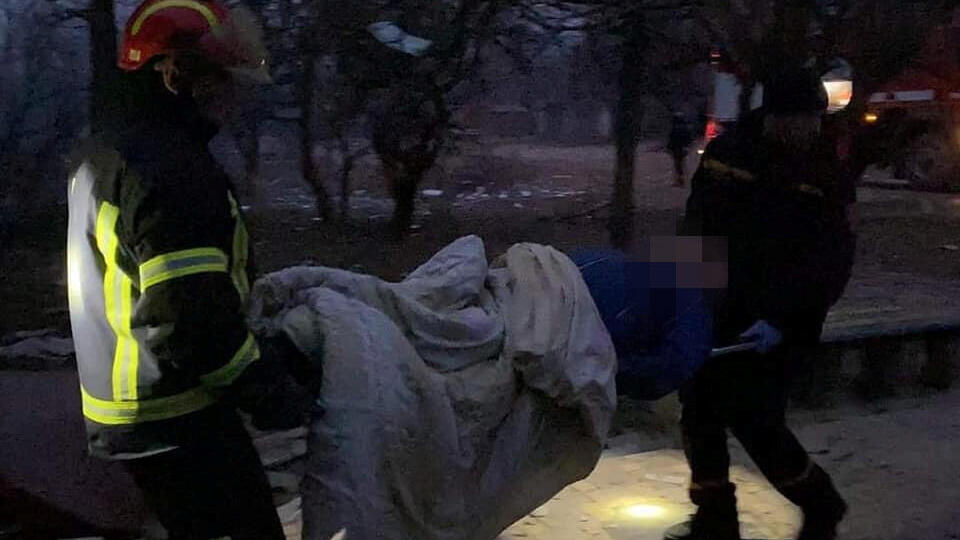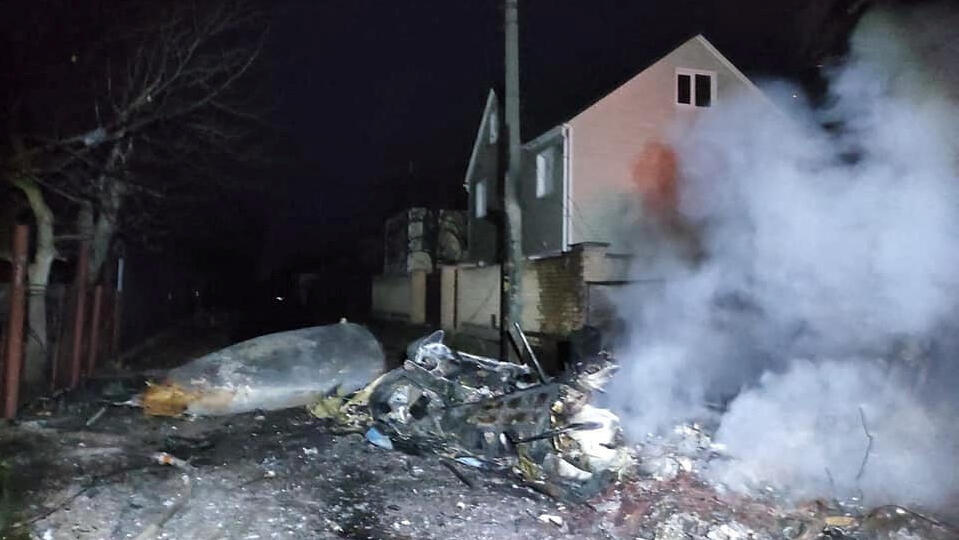Getting your Trinity Audio player ready...
Missiles pounded the Ukrainian capital on Friday as Russian forces pressed on in their advance and are estimated to take the city in the course of the day.
"Horrific Russian rocket strikes on Kyiv," Foreign Minister Dmytro Kuleba wrote on Twitter. "Last time our capital experienced anything like this was in 1941 when it was attacked by Nazi Germany.
3 View gallery


Residential bloc damaged by Russian fire in the suburb of Kyiv on Friday
(Photo: Reuters)
Anton Herashchenko, an adviser to the interior minister said that Ukrainian forces downed an enemy aircraft over Kyiv in the early hours of the morning.
The aircraft crashed into a residential building and set it on fire, injuring at least eight. It was unclear whether the aircraft was manned or whether it could be a missile.
A series of explosions were heard in Kyiv earlier, which Herashchenko said were the sounds of air defenses firing at the aircraft. Further explosions could be heard just before dawn, a witness said.
A senior Ukrainian official said Russian forces would enter areas just outside the capital, Kyiv, later on Friday and that Ukrainian troops were defending positions on four fronts despite being outnumbered.
Russia launched a full-scale invasion of Ukraine on Thursday and Kyiv has reported at least 137 deaths and hundreds of wounded.
An estimated 100,000 people fled as explosions and gunfire rocked major cities. Dozens have been reported killed.
Authorities said intense fighting was under way on Friday morning in the city of Sumy in the country's northeast, while a border post in the southeastern Zaporizhzhya region had been hit by missiles, causing deaths and injuries among border guards.
3 View gallery


Ukrainian emergency team removes a victim of Russian shelling in eastern Ukraine
(Photo: Ukraine)
Ukrainian President Volodymyr Zelenskiy said on Friday that he was named by Russia as their number one target adding that continued Russian aggression against his country showed that sanctions imposed on Moscow by the West were not enough.
Zelenskiy said the world was continuing to observe what was going on in Ukraine.
Addressing the Russian population in Russian at the end of a televised speech, Zelenskiy said the bombing of Kyiv was reminiscent of Nazi Germany's attacks during World War Two.
"This is reminiscent of 1941," Zelenskiy said.


